Two Old Mysterians
Thomas Henry Huxley
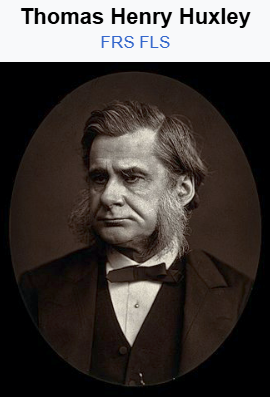
Take this often-quoted (see here) passage from 1869:
“[H]ow it is that anything so remarkable as a state of consciousness comes about as a result of irritating nervous tissue, is just as unaccountable as the appearance of the Djinn, when Aladdin rubbed his lamp.”
Those are the words of the biologist and anthropologist Thomas Huxley. Relevantly, he’s been classed as a “old mysterian”.
Is his position necessarily mysterian?
In 1869, couldn’t someone have stated the following words?-
How it is that anything so remarkable as the wetness and transparency of water comes about as a result of H2O molecules, is just as unaccountable as the appearance of the Djinn, when Aladdin rubbed his lamp.
As stated, the passage above from Huxley was written in 1869, long before the rise of neuroscience, cognitive psychology, 20th century philosophy, etc…
All that said, the philosopher David Chalmers would argue that precisely nothing has changed on this front — at least as regards how “a state of consciousness comes about as a result of irritating nervous tissue”.
John Tyndall
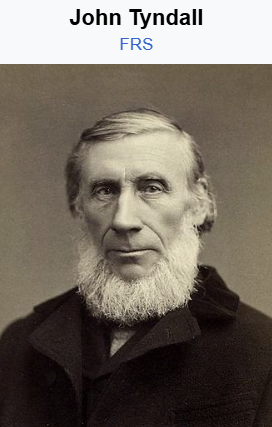
Two years later, in his 1871 book Fragments of Science, the Irish physicist John Tyndall (1820–1893) highlighted similar themes here:
“[The] passage from the physics of the brain to the corresponding facts of consciousness is unthinkable. Granted that a definite thought, and a definite molecular action in the brain occur simultaneously; we do not possess the intellectual organ, nor apparently any rudiment of the organ, which would enable us to pass, by a process of reasoning, from the one to the other. They appear together, but we do not know why.”
Tyndall fully acknowledged that “a definite thought, and a definite molecular action in the brain” actually “occur simultaneously”. However, this is a (not Tyndall's words) “mere correlation”.
Correlation simply wasn’t enough for Tyndall…
But wait a minute.
It’s not as if scientists and philosophers simply note certain correlations, and then quickly and wildly jump to believing that the brain causes the mind (or causes Tyndall's definite thought).
After all , there may be some kind of correlation between a dog barking in West Yorkshire and Jim Brown eating his lunch in Brighton. However, no scientist I know would believe that the dog barking (physically) caused Jim to eat his lunch. [This example is based on David Hume’s own example in which he too tackles causation and correlation.]
The same is true of the brain and mind.
It’s not only that there are correlations… Full stop!
Those correlations are systematic, and lots and lots is now known about both sides of them. Thus, there are a whole host of scientific, logical and philosophical reasons to believe that it’s not just a question of correlations. Indeed, it’s about a hell of a lot more.
So contemporary neuroscientists don’t fall for the silly correlation-must-imply-causation mistake — literally without any thought…
All that said, Tyndall was writing in 1871.
Thus, he believed that we need “to pass, by a process of reasoning, from the one to the other”. More relevantly, he believed that this move from the brain to a definite thought is ruled out because we human beings
“do not possess the intellectual organ, nor apparently any rudiment of the organ, which would enable us to pass, by a process of reasoning, from the one to the other”.
All the above means that Colin McGinn’s notion of “cognitive closure” existed some 100 years before he himself expressed it in the 1980s. (McGinn will be discussed in a moment.)
John Tyndall ‘s position may be closer to being mysterian than Thomas Huxley’s own. That’s simply by virtue of the fact that Tyndall says that “a definite thought and a definite molecular action in the brain occur simultaneously”. That said, Huxley also mentioned “irritating nervous tissue”.
This means that in the 1870s the brain was already being scientifically studied. Yet, as stated, it didn’t really have an impact on what came to be called “the mystery of consciousness”.
In any case, Tyndall makes his position crystal clear with the following words:
“Were our minds and senses so expanded, strengthened, and illuminated, as to enable us to see and feel the very molecules of the brain; were we capable of following all their motions, all their groupings, all their electric discharges, if such there be; and were we intimately acquainted with the corresponding states of thought and feeling, we should be as far as ever from the solution of the problem, ‘How are these physical processes connected with the facts of consciousness?’ The chasm between the two classes of phenomena would still remain intellectually impassable.”
This seems to go against Colin McGinn’s position in which he acknowledges the possibility that solutions to the mysteries may be discovered by clever aliens… or even by God. John Tyndall, on the other hand, seemed to have been arguing — or stating — that no matter how our “minds and senses [were] expanded, strengthened, and illuminated”, the mysterious (to use the contemporary phrase) “explanatory gap” would still remain.
Thus, Tyndall’s argument is that no matter what we know about the brain and its “molecular action”, we still won’t bridge the explanatory gap.
What’s more, if you believe that the explanatory gap will never be closed (or crossed), then that — by definition! — is a perfect example of mysterianism…
Unless there’s no gap in the first place! (That possibility can’t be discussed here.)
Three New Mysterians
Noam Chomsky and Colin McGinn

Noam Chomsky has also been classed as a mysterian. [See here.] That’s primarily because he made a strong distinction between those philosophical problems which are solvable (or which seem to be solvable), and those problems which are unsolvable (as the phrase has it) in principle.
In Daniel Dennett’s words:
“[ ] Noam Chomsky, who divides all matters of human puzzlement into soluble problems and insoluble ‘mysteries’. The human mind has its limits, and for Chomsky, the problem of free will, for instance, is simply off limits.”
The words “unsolvable in principle” are perfect for the mysterians’ position.
Yet it takes a lot of chutzpah to claim that a problem is unsolvable in principle.
How can that be known today?
Is it somehow knowable a priori?
Of course, Chomsky has attempted to tell us why it can’t be known today.
In detail.
Chomsky makes the rather obvious point that the brains and minds of all animals — including humans — are limited by their biology. (Chomsky also used the word “structure”.) So let’s quote a long passage from Chomsky:
“In brief, if we are biological organisms, not angels, much of what we seek to understand might lie beyond our cognitive limits — maybe a true understanding of anything, as Galileo concluded, and Newton in a certain sense demonstrated. That cognitive reach has limits is not only a truism, but also a fortunate one: if there were no limits to human intelligence, it would lack internal structure, and would therefore have no scope: we could achieve nothing by inquiry.”
That’s basically the same position (if differently expressed) as the one adopted by the English philosopher Colin McGinn.

So here’s McGinn (kinda) making a similar point:
“It is not beyond the bounds of possibility that our brains would have to be made of something other than neurons in order for us to have the kinds of cognitive powers needed to solve the problems philosophy poses [ ].”
Or as Chomsky himself put it:
“A Martian scientist, with a mind different from ours might regard this problem [of free will] as trivial, and wonder why humans never seem to hit on the obvious way of solving it. This observer might also be amazed at the ability of every human child to acquire language, something that seems to him incomprehensible, requiring divine intervention.”
The gist here is that the Martian scientist can solve problems we can’t, and we can solve problem it can’t. Of course, this mode of reasoning can be applied across the board!
Cats aren’t good at chess. Soccer players — on the whole — aren’t good boxers. Quantum physicists — on the whole — aren’t good comedians. Etc…
But is there anything deep here?
Take the case of a monkey.
McGinn put is this way:
“What is closed to the mind of a rat may be open to the mind of a monkey, and what is open to us may be closed to the monkey.”
Does a monkey understand what an electron is?
Well, does my question even make sense?
Dennett, for example, wrote the following words:
“I think we should be unimpressed by the example of the monkey, to whom the electron is out of bounds, for not only can it not understand the answers; it can’t understand the questions. The monkey isn’t baffled, not even a little bit.”
Let’s return to the “mystery” of free will.
A monkey couldn’t “understand the questions” about free will because a monkey understanding what free will is (or if it’s possible) doesn’t even arise.
However, most human beings understand some of the questions and some of the answers about free will. Chomsky, however, believes that none of the answers work…
But don’t we firstly need to agree that the existence of free will is, in fact, a problem? Moreover, don’t we also need to know if everyone is using the words “free will” in the same way?
What is “will”?
What is it for a will (whatever that is) to be “free”?
So, on one definition, “the problem of free will” may be solvable. However, on another definition, it may be unsolvable.
Despite all that, Dennett agrees with both Chomsky and McGinn about at least some (as it’s put) “philosophical problems”. However, he does so in a mightily qualified way. Dennett wrote:
“It is not that I disagree with McGinn about the possibility in principle that there are phenomena that will forever defy human understanding.”
To return to Chomsky’s position on the philosophical mysteries.
What does seem to be original to Chomsky is the last section from the long passage quoted above. Namely:
“[I]f there were no limits to human intelligence, it would lack internal structure, and would therefore have no scope: we could achieve nothing by inquiry.”
This passage is beholden to Chomsky’s previous work in linguistics. It seems to suggest (or actually state) that omniscience — whether for humans or even for God — would be a profound disadvantage. In fact, if I read Chomsky paradoxically, then “no limits to human intelligence” would result in severe limits to human intelligence.
So, by Chomsky’s argument, too little intelligence will leave the philosophical mysteries unexplained, and too much intelligence would result in us “achiev[ing] nothing by inquiry”.
More broadly, must we simply accept the unsolvable-in-principle mysteries Chomsky has in mind?
This almost seems like an encouragement of some kind of philosophical — and scientific — quietism when it comes to free will and the other mysteries.
In any case, much of what Chomsky argued above is an acceptance of what Colin McGinn calls cognitive closure.
The following passage is McGinn’s own technical expression of this notion:
“A type of mind M is cognitively closed with respect to a property P (or theory T) if and only if the concept-forming procedures at M’s disposal cannot extend to a grasp of P (or an understanding of T).”
In more down-to-earth terms, McGinn also wrote:
“The man born blind cannot grasp the concept of a visual experience of red, and human beings cannot conceive of the echolocatory experiences of bats.”
This is McGinn following Thomas Nagel’s party line, as found in his paper ‘What Is It Like to Be a Bat?’.
Steven Pinker
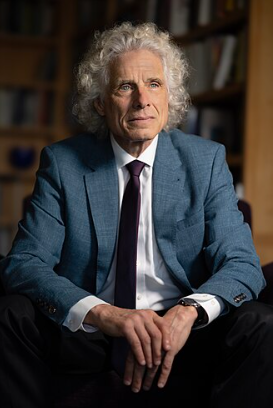
The cognitive psychologist and philosopher Steven Pinker also puts the Chomsky-McGinn position in the following passage:
“The brain is a product of evolution, and just as animal brains have their limitations, we have ours. Our brains can’t hold a hundred numbers in memory, can’t visualize seven-dimensional space and perhaps can’t intuitively grasp why neural information processing observed from the outside should give rise to subjective experience on the inside.”
That’s the part of Pinker’s position which can be classed as mysterian. However, then comes the “pseudo-mysterian” conclusion:
“This is where I place my bet, though I admit that the theory could be demolished when an unborn genius — a Darwin or Einstein of consciousness — comes up with a flabbergasting new idea that suddenly makes it all clear to us.”
Pinker, of course, focusses on the Hard Problem of Consciousness. He asks us (to repeat)
“why neural information processing observed from the outside should give rise to subjective experience on the inside”.
It can be seen that Pinker isn’t a religious mysterian in that he offers us the possibility that this particular mystery “could be” explained (or “demolished”) in the future. To religious mysterians, on the other hand, it’s important that the Hard Problem of Consciousness is never solved - at least not by scientists, and perhaps not by philosophers either.
Without actually using that term, Pinker also refers to cognitive closure.
In a manner similar to McGinn, Pinker tells us that
“[o]ur brains can’t hold a hundred numbers in memory, can’t visualize seven-dimensional space”.
Pinker is telling us why such “limitations” of the human brain will lead to mysteries. In other words, if human brains can’t hold a hundred numbers in memory or visualize seven-dimensional space, then why should they be able to solve the Hard Problem of Consciousness?
So are human brains limited?
Of course they are!
Not only are minds cognitively limited, all brains must be physically (or biologically) limited too.
But why would an anti-mysterian deny that?
Almost by definition, there must be such limitations.
That said, surely such limitations don’t necessary mean that the (supposed?) mysteries will remain mysteries… forever.
More clearly.
What is the necessary link between the scientifically-established limitations of the mind and brain, and certain (or all) mysteries remaining mysteries?
To repeat. Sure, it may well be the case that we can’t hold a hundred numbers in memory, visualize seven-dimensional space, etc. However, why should these scientifically-established limitations effortlessly pass over to human beings never being able to explain (or solve) the Hard Problem of Consciousness or any of the other philosophical mysteries?
Let’s finish off on a tangent, and discuss Richard Feynman’s well-known remarks about quantum mechanics.
Final Comment: Feynman and McGinn
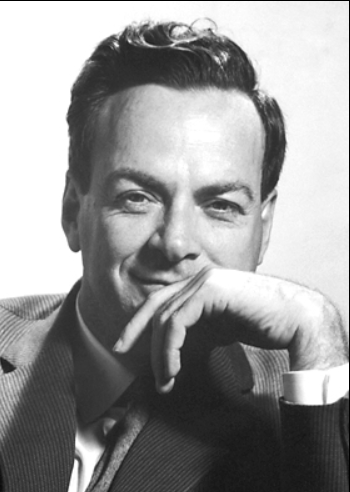
Take this very-well-known line (or catchy slogan) about quantum mechanics:
“I don’t understand it; nobody understands it.”
So did the theoretical physicist Richard Feynman implicitly refer to (i.e., without using the precise technical term) cognitive closure when it came to quantum mechanics?
This is odd.
To quote Daniel Dennett, Feynman “probably grasped it as well as anyone”.
Dennett then argued (if put in my own words) that Feynman wasn’t as pessimistic about understanding quantum mechanics as Colin McGinn is about understanding consciousness. He continued:
“But even Feynman, who was also an International Grand Master in the chutzpah department, didn’t say: ‘I don’t understand it, and nobody ever will.’”
The science writer Philip Ball has similar things to say about Feynman and his… well, false modesty.
Ball tells us that “[a]t that point, no one alive knew more than Richard Feynman about quantum mechanics”. He (ironically) concludes: “What hope is there, then, for the rest of us?”
To be honest, I find Feynman’s remark to be rhetorical and deliberately titillating, as I suspect both Dennett and Ball do. In other words, Feynman’s statement doesn’t mean what many people think it means.
So why, exactly, does no one understand quantum mechanics? Indeed, is it the case that no one understands quantum mechanics?
So what does it mean not to understand quantum mechanics?
To sum up. Does Colin McGinn have a stronger view on our not understanding consciousness than Feynman had on our not understanding quantum mechanics?
Note:
(1) Friedrich Hayek, like so many others, applied Kurt Gödel’s theorems to a problem (or subject) that’s way outside the arithmetical systems Gödel himself applied them to.
Hayek applied the theorems to what Colin McGinn classes (as we’ve seen) as the cognitive closure of human minds. Hayek wrote:
“The whole idea of the mind explaining itself is a logical contradiction. [ ] takes this incompleteness — the constitutional inability of mind to explain itself — to be a generalized case of Gödel’s incompleteness theorem [ ].”
This seems like a free-and-easy and unjustifiable application of Gödel’s theorems. That said, it does involve the notion of self-reference, which is central to the theorems.
In simple and obvious terms, then, Gödel’s theorems have nothing to do with minds and explanation. On the surface at least, “the mind explaining itself” certainly doesn’t seem to (automatically?) involve a “logical contradiction”. For a whole host of reasons, it may be an impossible task. However, where is the “logical contradiction” here?
That said, Hayek did explain his use of the word “explanation”. He wrote:
“1. Explanation is delimited by the apparatus of classification (the mind) [ ] 2. An apparatus of classification cannot explain anything more complex than itself. [ ] 3. Therefore, the mind cannot fully explain itself.”
- Yes, the mind must have some limits. Does that mean every subject that is explained by the mind — including the mind itself — must also have limits? It depends on what’s meant by “limits”. If this is simply the claim that a mind can never be omniscient about itself, then Hayek was right.
Another way of putting this is that a mind can never fully explain itself to completion.
This example has nothing to do with Gödel incompleteness (which is applicable to mathematical systems). This type of incompleteness isn’t about insolubilia or logical contradiction: it’s about non-Gödelian incompletability. (It can be said that incompletability — in some cases at least — implies insolubilia.)
2. Is the mind explaining itself also explaining something “more complex than itself”?
3. Sure, “the mind [or a mind] cannot fully explain itself” because it’s not omniscient. But, again, how do Gödel’s theorems really apply to a mind explaining itself — except in a loose and vague sense?
Of course, there’s a situation of self-reference here. However, that doesn’t have the profound importance that it does in Gödel’s system. After all, when a person says “I am happy”, that’s a relatively harmless case of self-reference. Similarly, an introduction to a book is within the book it’s an introduction to.










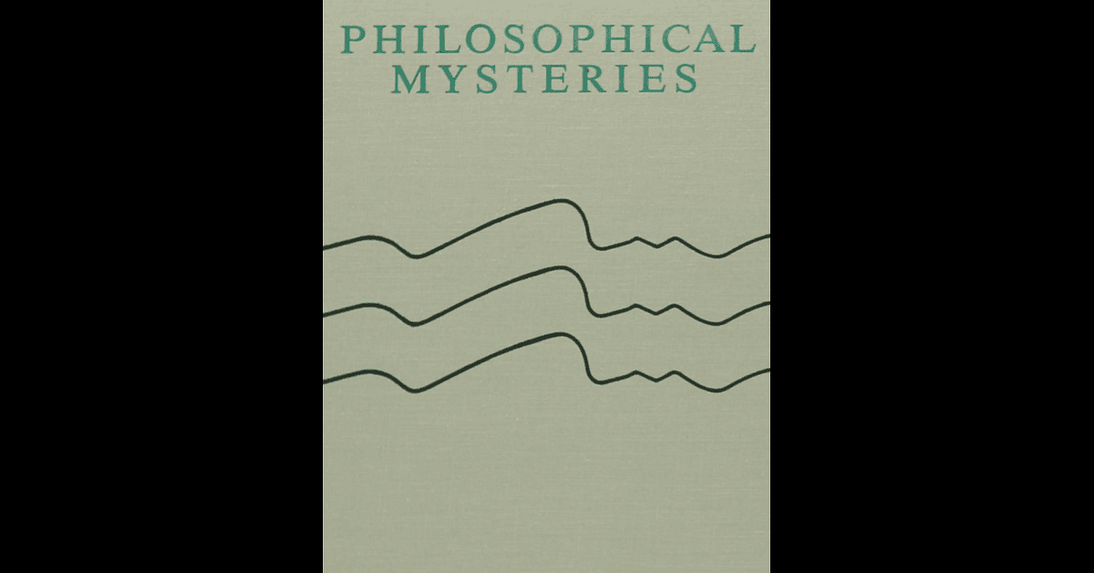
No comments:
Post a Comment